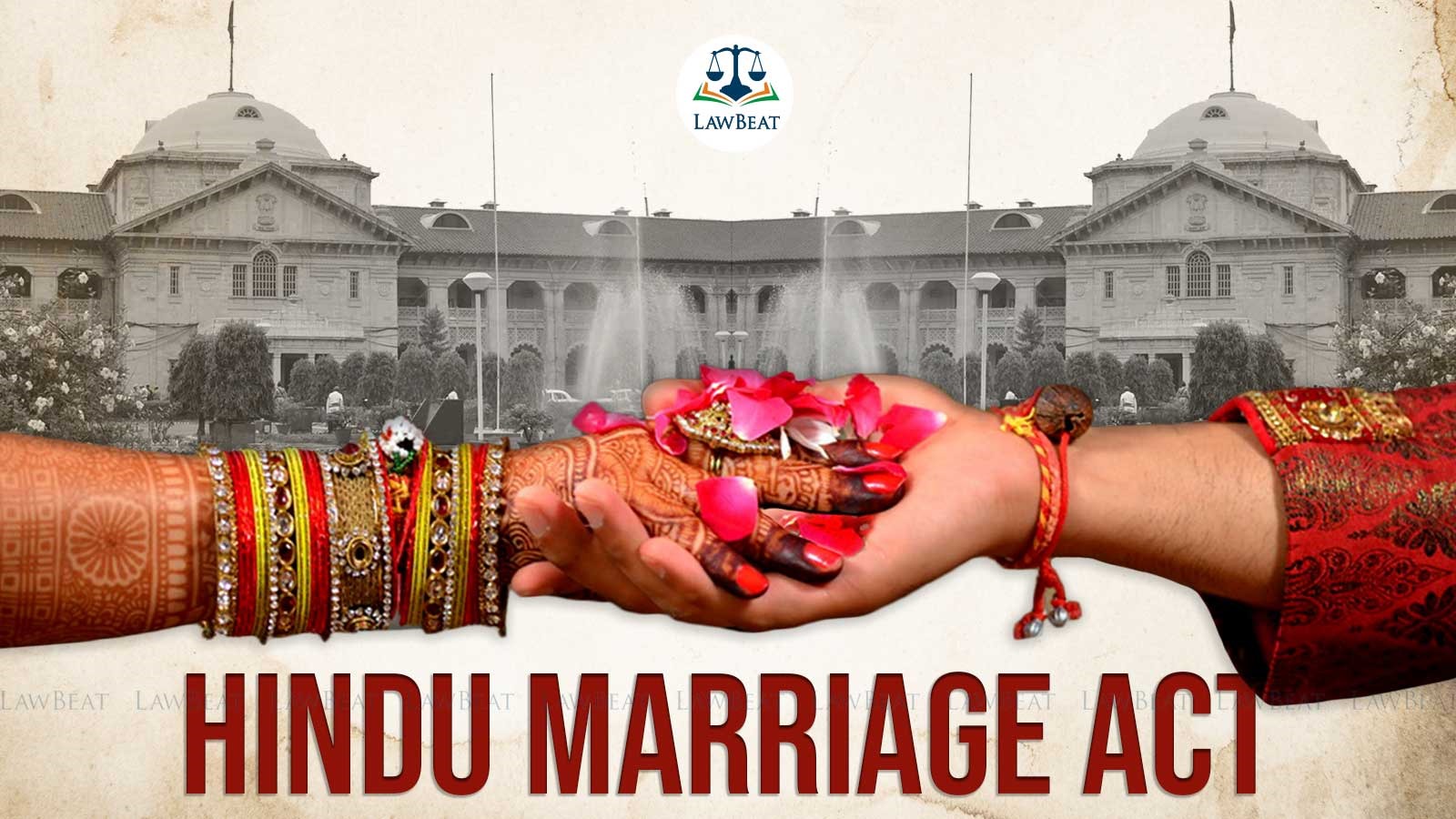Allahabad HC Allows Parents to Continue Deceased Son's Marriage Annulment Case

A man filed for annulment in family court, alleging his wife misrepresented her marital status and religion, but after his death in a road accident, his parents sought to continue the proceedings
The Allahabad High Court recently upheld a family court's decision allowing the parents of a deceased husband to continue marriage annulment proceedings against his wife.
The division bench of Justices Vivek Kumar Birla and Syed Qamar Hasan Rizvi held that "after the death of a husband who filed a petition under Section 11 of the Hindu Marriage Act for marriage annulment, the parents have the right to be substituted as legal representatives under Order 22 Rule 3 of the Civil Procedure Code (CPC) to pursue the proceedings".
While stressing that legal remedies should not be unduly restricted and should fulfill the broader objectives of the law, the court observed that since property rights are always involved in such cases when the marriage itself is being claimed as void ab initio, therefore, being the legal representative of a deceased person, his/her parents have the right to continue the annulment proceedings to determine their child's marriage's validity.
Case Background
A man filed an application before the family court in Kanpur Nagar under Section 11 of the Hindu Marriage Act on the ground that his marriage with his wife was an outcome of fraud. He alleged that his wife had misrepresented her earlier marital status and religious background at the time of their marriage. Unfortunately, the man passed away in a road accident on February 24, 2023, before the resolution of his case.
Following the man's death, his parents sought to continue the annulment proceedings. The family court in Kanpur Nagar ruled in their favor on January 10, 2024, applying Order 22 of the CPC, which permits legal representatives to continue legal proceedings after the death of a party. This decision allowed the man's parents to step in and pursue the annulment on his behalf.
However, the wife challenged this decision before the high court, arguing that the divorce proceedings should terminate with the man's death as the matter was strictly between the spouses. Her counsel claimed that the family court misapplied the CPC provisions to a divorce case, where traditionally, proceedings abate upon the death of one party.
High Court's Decision:
The high court reviewed the family court's decision and upheld it, emphasizing the applicability of CPC provisions to family court proceedings as outlined under Section 10 of the Family Courts Act, 1984.
Further, the bench highlighted that the primary objective of an annulment decree is to nullify an invalid marriage, which should be recognized from the outset as never having existed.
The high court referred to its previous ruling in Garima Singh vs. Pratima Singh and another (2023), interpreting "either party thereto" under Section 11 of the Hindu Marriage Act to include legal representatives under specific circumstances. "It was also observed that the Court should lean towards an interpretation that serves the interprets of justice and aligns with the broader objectives of the law and by doing so, the Court can ensure that the remedies available under Section 11 are not unduly limited and the individuals seeking relief are not unjustly deprived of their rights," court highlighted.
It held that since in such matters the declaration would have an impact on proprietary rights and socio-legal status of the parties, therefore, it cannot be said that those rights and status died with any of the parties.
The judgment concluded that the deceased's parents had the right to continue the annulment proceedings to determine the marriage's validity, considering the potential impact on property rights and the legal status of the marriage.
"If it is being claimed that the marriage is void, legal representative can be impleaded / substituted to pursue the petition filed under Section 11 of the Act," court held.
Therefore, finding no illegality or infirmity in the family court's order, court dismissed the appeal filed by the wife.
Case Title: Shatakshi Mishra v. Deepak Mahendra Pandey (Deceased) And 2 Others
